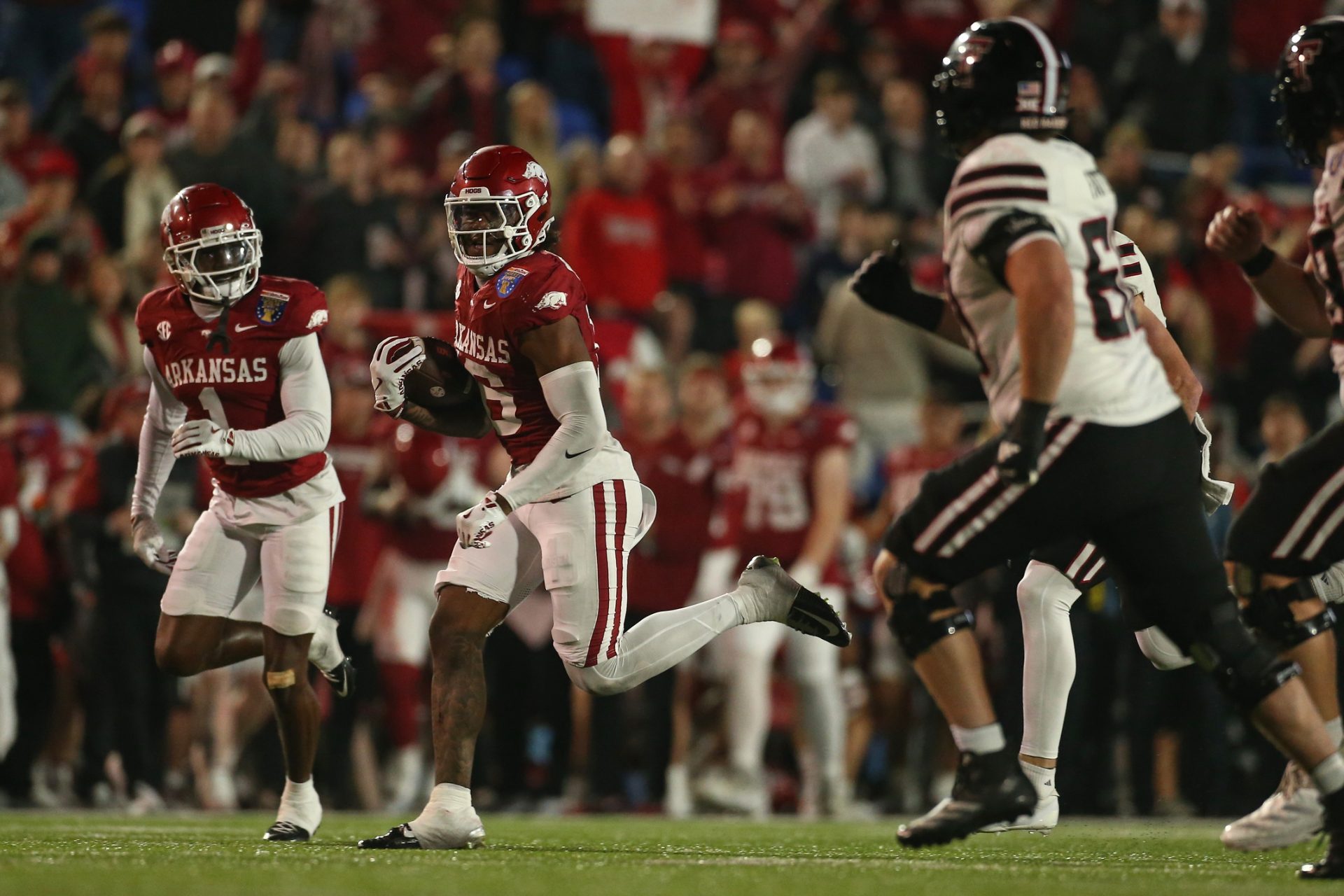On Tuesday, Arkansas quarterback Madden Iamaleava—the brother of new UCLA quarterback Nico Iamaleava—entered the transfer portal, presumably to join his brother in Westwood.
Hours later, Arkansas athletic director Hunter Yuracheck released a statement expressing his “support” for NIL collective Arkansas Edge’s “pursuit to enforce their rights under any agreement violated by our student-athletes moving forward.”
The statement was taken by many as a thinly veiled threat to Madden, who arrived in Fayetteville just a few months ago after decommitting from UCLA himself. He hadn’t played a down of regular-season football with Arkansas but had inked an NIL contract with Arkansas Edge.
In some ways, the speculation was correct: Madden is one of several athletes who have violated the terms of Arkansas Edge contracts by transferring before his contract was set to expire, prompting the collective to try to enforce a “buyout” clause, a source familiar with the situation tells Front Office Sports. The collective has since issued two demand letters to players to pay buyouts, the source said—though the source declined to confirm that Madden was one of them.
Arkansas isn’t the only collective seeking redress. Multiple sources told FOS that collectives are increasingly trying to recoup revenue from players who are utilizing new NCAA rules, which let athletes transfer as many times as they wish without penalty. “Buyouts are fairly common, especially with high-value athletes,” Russell White, president of The Collective Association, tells FOS. “They are now being included in more agreements.”
The key question is whether buyouts are enforceable.
In the pros, as well as with college coaches, buyouts are paid by the team or school the player transfers to. But in the NIL era, they work differently.
Usually, a collective will include a buyout clause requiring the player to either pay or return a certain amount of money to the collective if the player violates the terms of the agreement—usually if they leave schools before the lifetime of the contract ends, and therefore can’t complete all the requisite NIL activities. At Arkansas, for example, deals span one year, and buyouts require players to pay an amount equal to 50% of the remaining earnings through the lifetime of the contract, the source says.
The enforceability of the contract, however, depends partially on the language of the deal, sports lawyers tell FOS. Attorney Darren Heitner, who represents dozens of college athletes, says that buyouts framed as “penalties” are often less enforceable legally than buyouts framed as “damages.”
“I’m not willing to generalize and state that all buyouts are unenforceable,” Heitner says. “However, on the rare occasion that there has been a claim for repayment for one of my clients, that has been my conclusion based on the language of the agreement at issue as well as the specific facts of the situation at hand.”
Attorney Mit Winter notes that the price of requested damages could matter, too. “The collective would need to be able to tell a court or an arbitrator that by no longer being able to use the athlete’s NIL rights, it will be damaged in some non-speculative amount. That could be hard for some collectives to do.”
Heitner says none of his clients have had to pay buyouts to date. Winter says that, to his knowledge, “not that many” collectives have been able to successfully collect buyouts.
But success is in the eyes of the beholder. The source familiar with the Arkansas situation says collectives don’t always receive the full amount, but the buyout clause itself brings players and their representation to the table to negotiate some restitution. (While there have been disputes across the industry, White says, most have been resolved behind closed doors.)
The next step for the industry: to see how a buyout clause fares in court.
For now, one thing is clear: Collectives are no longer accepting being left high and dry in the era of unrestricted free agency.







![[Subscription Customers Only] Jun 15, 2025; Seattle, Washington, USA; Botafogo owner John Textor inside the stadium before the match during a group stage match of the 2025 FIFA Club World Cup at Lumen Field.](https://frontofficesports.com/wp-content/uploads/2026/02/USATSI_26465842_168416386_lowres-scaled.jpg?quality=100&w=1024)
![[Subscription Customers Only] Jul 13, 2025; East Rutherford, New Jersey, USA; Chelsea FC midfielder Cole Palmer (10) celebrates winning the final of the 2025 FIFA Club World Cup at MetLife Stadium](https://frontofficesports.com/wp-content/uploads/2026/02/USATSI_26636703-scaled-e1770932227605.jpg?quality=100&w=1024)








